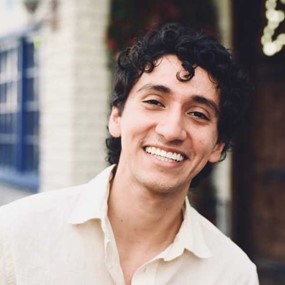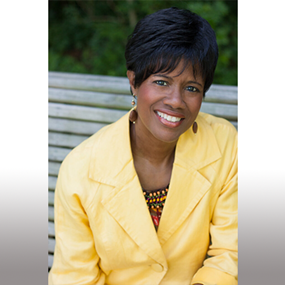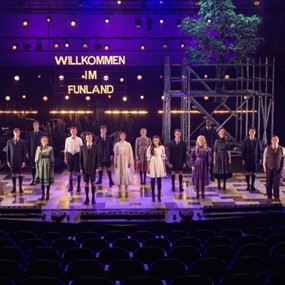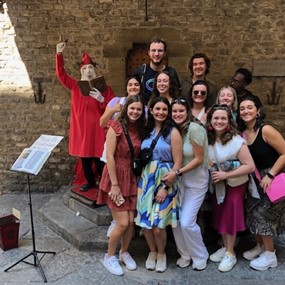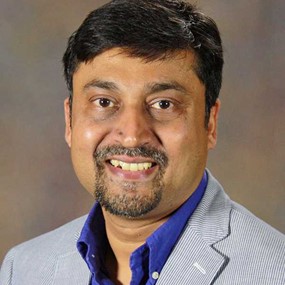Keep watching: Auburn entertainment experts discuss WGA, SAG-AFTRA strikes
The Writer’s Guild of America (WGA) and Screen Actors Guild-American Federation of Television and Radio Artists (SAG-AFTRA) strikes continue, exceeding 100 days in early August. As the current strikes in Hollywood approach a record length, Assistant Professor of Media Studies Eleanor Patterson and Assistant Professors of Theatre Abdul-Khaliq Murtadha and Andrew Schwartz discuss the historic significance of the joint writers-actors work stoppage and how technology lies at the center of the dispute.
Listen to the full conversation on "The Things You Didn’t Know You Didn’t Know" podcast:
What’s happening in Hollywood and what do we need to know about these strikes?
Patterson: This strike is pretty historic. You officially have two separate strikes going on that are in solidarity, but this is a historic moment in Hollywood and New York and in the entertainment business more broadly because I don't think there's been a strike like this in over 60 years.
Every major strike that the Writer's Guild has done has always been about residuals, often in the face of new technology. Believe it or not, home video was a new technology in the '80s, but they didn't get what they wanted then. The major conglomerates at the time, the big studios, Universal, Warner Brothers, Disney, they sort of said that home video is a new technology and we're experimenting, and so we can't actually afford to give you residuals from these sales yet because we don't know what's going to happen. If that sounds familiar, that's because that's what the tech companies are saying right now. That profit is unknown and negligible at this point because streaming is not yet as lucrative in many aspects of the industry.
It's not just technology as a blanket force, it's the way that these technology companies are changing how media has made, the conditions through which it's made and how it's distributed and how its revenue models work. That has created a new situation that writers and actors find themselves in, and they have a lot of concerns about artificial intelligence, but also about streaming in general.
What is the actors' view of what's happening right now? What's on the line in Hollywood?
Schwartz: It used to be studio heads that ran these studios, and they were usually movie people that had worked up through and became the head of studios, and now they are seen as CEOs of major mega-mergers. They're kind of devaluing the work and the actors start to feel like just ones and zeros as opposed to necessary storytellers and artists.
Murtadha: The idea is spending the billions of dollars or millions of dollars on a television show, for example, and then trying to squeeze out of the people who are making it, the artisans who are pulling it together, trying to cut that so that you can take home the billions. You're pretty much destroying the industry. You can't just cut the human beings, the actors out of it or the writers out of it because you think that's cutting the bottom line.
Schwartz: Something like only 13% of union members qualify for the SAG-AFTRA health insurance. They're earning less than $25,000 a year annually. These are working class people, and I think a lot of people think of SAG-AFTRA and they think of these big stars, but there's a lot of actors that are really just struggling to get food on the table, and it's just getting worse as more and more people are actually watching the content. It is a revenue stream there. Despite the fact that there are record level profits being made by these large companies, they are not sharing it anywhere near fairly with the people that create the content.
How does artificial intelligence play a role in these strikes?
Murtadha: It’s important to look at how technology is continuing to shape the industry and helping the industry evolve. The only thing with that is that you can't take the ideas of humanity or human empathy out of the equation. AI comes in, or AI has been being developed since what the '50s, '60s, what have you. But that doesn't negate us from the equation. I think the healthy and responsible use of AI would be, for example, if it can help me to make a quick outline based on the ideas that I feed it. That's been happening for more than a decade. Now I've got to go back to the outline and work on it. You can't take that human quotient out of it because it devalues the quality of it. It's not just about the quantity. When we come to residuals, you can't just cut the human beings, the actors out of it, or the writers out of it, because you think that's cutting the bottom line. If you want a sustainable business model, then it's important for you to look at the artist as necessary.
Will anyone notice a difference in what they're seeing because of these strikes?
Schwartz: A lot of shows have just wrapped or are in post-production right now. I don't think people will really see a difference in the kind of day-to-day, at least not for a few months. But then after that, it could be a very quick and significant difference. There are some, I think A24 is an example of a company that has been granted the right to continue to produce because they have honored all of the agreements that SAG-AFTRA put forward. Even a small company can make all of this possible and can honor these requests. If A24 can do it, why can't HBO Max do it? I suspect that in about six months, if we don't come to a resolution soon, viewers and people at home will start to notice a significant difference in the quality of what they're seeing.
What do we know about potential resolutions?
Patterson: Everything I'm seeing is that the union is very committed to fighting for their goals. Solidarity between unions and unity within unions bode well. I do think that the Producer's Guild will have to make concessions. They have been reluctant. They have not even come to the table for about a hundred days. This strike is going on very long, but I think there's a lot to lose on the part of the actors and the writers. There's a lot of concern about AI, and I think they are also committed to the strike. There are loans and grants and financial assistance that are available to members of these guilds that I think the unions have purposely tried to create so that people don't want to cross the picket line, so that people can stay strong.
About the experts:
Eleanor Patterson is an assistant professor of media studies who studies everything from the history of television and film, media industry and labor to cultural studies, audience/fan studies and gender and sexuality. She has been featured on NPR and other national media outlets numerous times, and her father was a film editor in Hollywood for many years.
Abdul-Khaliq Murtadha is an assistant professor in Theatre & Dance. Murtadha is an actor and producer known for “J.A.W.,” “In the Wind” and “The Unit.” He recently appeared on “Days of Our Lives” and holds an MFA from the University of California, San Diego.
Andrew Schwartz is an assistant professor of theatre who has ample experience as a director and worker in theaters ranging from Broadway and Off Broadway to The L.A. Shakespeare Festival and the Aegean Festival in Athens, Greece. A member of Actor’s Equity Association, Schwartz has directed everything from “The Crucible” and “Little Shop of Horrors” to “Twelfth Night” and “Our Town.”
Transcript
Crowd:
No actors.
Speaker 2:
Both the Writer's Guild of America and the Screen Actors Guild are on strike and Hollywood is effectively shut down.
Brandon Etheredge:
It's stopping new shows across the country.
Brandon Etheredge:
The writer's strike crossed 100 days and more productions continue to get delayed.
Brandon Etheredge:
The Hollywood strike shutting down an American industry worth over 700 billion a year.
Speaker 5:
The broadcast TV networks are heading into the fall season with writers and actors still out on strike. That means no new episodes of scripted dramas or comedy.
Brandon Etheredge:
Without a deal on the table, and both sides barely talking, the end, not yet in sight.
Crowd:
Workers get paid.
Brandon Etheredge:
What's happening in Hollywood and how will it all end?
Welcome to season five. Yes, you heard that right, season five of The Things You Didn't Know You Didn't Know Podcast. As always, I'm your host Brandon Etheredge, and joining me today is the largest panel of experts we've ever had on this show at once to discuss the monumental strikes happening out in Hollywood. On the panel today is AK Murtadha. He's an assistant professor of theater and dance at Auburn University, also a member of SAG AFTRA. You may have seen him before on all my children and, one of my personal favorites, NCIS. Also joining us is Andrew Schwartz. He's an assistant professor of theater and dance at Auburn University. His work seen on and off Broadway at some of the biggest playhouses across the country. For the streaming side of things, our resident media expert, Eleanor Patterson and assistant professor and media studies in the School of Communication and Journalism at Auburn University. AK, Eleanor, Andrew, thank you so much for joining us, taking time to talk and explain all the things that people have no idea about the intricacies and all that's going on with these strikes. Thank you so much for taking a few minutes and chatting with us about this. Nora, I want to start with you. Just give us a broad overview, explain where things are, what's happening, what's the information we need to know about these strikes?
Eleanor Patterson:
Well, this strike is pretty historic. Well, it's not even one strike. You actually officially have two separate strikes going on that are in solidarity, but this is a historic moment in Hollywood and New York and in the entertainment business more broadly because I don't think there's been a strike like this in over 60 years. I think some people that if you're older, like I am, certainly writers and actors in the business remember the 2007 strike that went into 2008 when the Writers Guild, WGA, went on strike, and the issue at that point was very similar. It was about residuals and compensation for unpaid work that was connected to writing mini webisodes and creating scenarios for online content in this sort of new streaming environment. They got some ground in 2008, not everything that they wanted, but that was the case then.
I actually, I was just refreshing myself on some of the labor union history, and this goes back to the '50s. Every major strike that the Writer's Guild has done has always been about residuals, often in the face of new technology. Believe it or not, home video was a new technology in the '80s, but they didn't get what they wanted then. The major conglomerates at the time, the big studios, Universal, Warner Brothers, Disney, they sort said that home video is a new technology and we're experimenting, and so we can't actually afford to give you residuals from these sales yet because we don't know what's going to happen. If that sounds familiar, that's because that's what the tech companies are saying right now.
That profit is unknown and negligible at this point because streaming is not yet as lucrative or lucrative in many aspects of the industry. Therefore, writers kind of have to just tighten their pants and be grateful to have a job, right? No, I'm just kidding. I don't know. But there's some other big... In some ways, there are these currents that are going through the industry that have always been there, and that's tied to a few things. I could probably talk about this for an hour, but it's tied to a few things. One of the things that's unique to working in the media industry is that most work is freelance. Whether you are a grip on the set of The Walking Dead up outside of Atlanta, or you're a writer back in LA writing the scripts, your work is seasoned by season, but almost always episode by episode, you don't actually work directly for AMC, you do these contracts, and so you don't have a stable, secure source of income. You're a freelance worker, and if you're a writer, you may have long periods of not working either between seasons or between getting gigs. It's a very political environment where it's really just as much about who you know as it is about how good you are and probably more about who you know.
You can go periods of time without having a steady source of current income. Residuals, which is the money that you get for reruns, syndication, sales, and licensing of your creative work, those can often hold people over and we're in this... Those have been a place of contention and very strong concern for writers, but also for actors. That's part of both of these strikes. The WGA, which is the Writer's Guild of America, has been on strike since May 2nd, and SAG AFTRA, which is the Screen Actors Guild and the American something, something television, radio actors.
They merged as a union in 2012, and they are also on strike as of, I believe, June 30th or July 1st. Wait, no, or July 16th. I was looking up the exact data and now it blurs, but they're both on strike. One reason that we are particularly here at this moment is that they cannot go on strike until their contract is up for negotiation. You sort of have this moment of the stars aligning where these concerns about residuals and some of the other issues that are on the docket right now are artificial intelligence, inflation, and the lack of calculating healthcare contributions and pensions in accordance with inflation, worker safety. Those are all part of the demands. Demands is such a funny word. Those are all part of the concerns that the unions are bringing up.
Brandon Etheredge:
AK, Andrew, both of you are on the acting side of this. Let's take what Eleanor said and get really practical for a minute. What is the actor's view of what's happening right now? What's on the line in Hollywood?
Andrew Schwartz:
It used to be studio heads that ran these studios and that they were usually movie people that had kind of worked up through and became the head of studios, and that now they are seen as CEOs of major mega mergers. They're kind of devaluing the work and the actors start to feel like just ones and zeros as opposed to necessary storytellers and artists.
AK Murtadha:
The idea of spending the billions of dollars or millions of dollars on a television show, for example, and then trying to squeeze out of the people who are making it, the artisans who are pulling it together, trying to cut that so that you can take home the billions. You're pretty much destroying the industry. You can't just cut the human beings, the actors out of it or the writers out of it because you think that's cutting the bottom line.
Andrew Schwartz:
Something like only 13% of union members qualify for the health insurance, for the SAG AFTRA health insurance. They're earning less than $25,000 a year annually. These are working class people, and I think a lot of people think of SAG AFTRA and they think of Brad Pitt and they think of Margot Robbie, and they think of these big stars, but actually there's a lot of working class actors that are really just struggling to have health insurance and to get food on the table, of which AK and I have experienced being those people as well. We teach now, but we are both actors as well. I think we really understand that struggle, and it's just getting worse as more and more people are actually watching the content. It is a revenue stream there. These companies are making record profits, and who did we all turn to in the pandemic when everything shut down? We all started watching shows. We all started watching these stories that were written by people, as AK mentioned, the human element and acted by people. Despite the fact that there is record level profits being made by these large companies, they are not sharing it at the moment anywhere near fairly with the people that create the content.
Brandon Etheredge:
Eleanor, you mentioned there being some unique things about this strike, so let's dive into that for a moment. What exactly is different about the strike that we're seeing right now?
Eleanor Patterson:
Because people work on a freelance basis, their union, their guild, is sort of like what we would consider HR. These guilds for different aspects of the industry negotiate with the guild that represents the producers in the studios. Another unique aspect that makes these two strikes distinct is that this is the first time we have big tech companies as part of the Producer's Guild. This is the first time you have Amazon, Netflix. I'm like, what other tech companies? Because a lot of the, I was about to say Hulu, but Hulu is owned by Disney, so Disney has always been there, but this is the first... Oh, apple. You have Amazon, Apple, Netflix. This is the first time that they are represented by the Producer's Guild. This is historic because, again, there's always concerns over residuals, worker safety, pension, but there's a lot of backlash to the way that... It's not just technology as a blanket force, it's the way that these comtech companies are changing how media has made, the conditions through which it's made and how it's distributed and how its revenue models work. That has created a kind of new situation that writers and actors find themselves in, and they have a lot of concerns about artificial intelligence, but also about streaming in general.
Brandon Etheredge:
I know AI is very involved in the discussions, the conversations about what people are worried about in this strike. What are the implications for AI? What are we talking about with artificial intelligence?
Eleanor Patterson:
That's a good question. I was thinking, I went and saw Indiana Jones in the movie theater. In the first 20 minutes of the film, Harrison Ford is about 35 years old, and that's because of AI. I think these issues have come to a head over streaming and residuals, but a big part of it is this artificial intelligence and having your likeness used without your permission or having your scripts and your writing samples set into an AI software that can learn how to write like you can. I think it goes beyond streaming. Those are some of just the general things from a very superficial standpoint.
Brandon Etheredge:
AK, Andrew, what is your view on that?
AK Murtadha:
Well, first off, I think it's important to look at how technology is continuing to shape the industry and helping the industry evolve. The only thing with that is that you can't take the ideas of humanity or human empathy out of the equation. AI comes in, or AI has been being developed since what the '50s, '60s, what have you. Now it's at a point where you have writers who can... I was just telling Andrew the other day about an idea that we could just plug in and give us a loose outline and think, "Okay, now where do we take it from here?"
But that doesn't negate us from the equation. I think the healthy and responsible use of AI would be to, okay, if it can help me to make a quick outline based on the ideas that I feed it, great. That's been happening for more than a decade. Then now I've got to go back to the outline and work in it. The point is that Andrew and I still have to do the work. You can't take that human quotient out of it because it devalues the quality of it. It's not just about the quantity. I think when we come to residuals, you can't just cut the human beings, the actors out of it, or the writers out of it, because you think that's cutting the bottom line. I think if you want a sustainable business model, then it's important for you to look at the artist as necessary. The artist is most, if anything, human.
Brandon Etheredge:
Okay, so here's the question everyone's going to be asking. How does this impact me? What does this really look like for viewers, for consumers? Will anyone notice a difference in what they're seeing because of these strikes?
Andrew Schwartz:
Well, yeah. I think they're not going to notice a huge, because a lot of shows that have sort of just wrapped or are in post-production right now. There's going to be... I don't think people will really see a difference in the kind of day-to-day, at least not for a few months. But then after that, it could be a very quick and significant difference where suddenly, everything is not coming from the US anymore or... There are some, I think A24 is an example of a company that has been granted the right to continue to produce because they have honored all of the agreements that SAG AFTRA put forward. As kind of an example to look, even a small company can make all of this possible and can honor these requests. If A24 can do it, why can't HBO Max do it? I think that's a really... I think there will be some content, and again, I'm not an expert, but I suspect that in about six months, if we don't come to a resolution soon, viewers and people at home will start to notice a significant difference in the quality in what they're seeing.
Brandon Etheredge:
Do we have any indication on how all of this comes to an end? How do we get to a resolution where we get to see shows start filming again and things start coming up online for people to stream again?
Eleanor Patterson:
I think that the solidarity between the two unions is unprecedented, not just between SAG AFTRA and the Writers Guild of America, that is historic. I haven't seen that. I think there have been industry-wide strikes since the 1950s, but I think it goes back to 1960 when they were striking with residuals together. You should go read a book and find out the precise date, but it's been a very long time, so that's a historic moment too. I think another thing that is unprecedented is unity within unions. There have often been disunity among leadership, and everything I'm seeing is that the union is very committed to fighting for their goals.
I think those two aspects of solidarity and unity bode well. I do think that the Producer's Guild will have to make concessions. They have been reluctant. They have not even come to the table for about a hundred days. This strike is going on very long, but I think there's a lot to lose on the part of the actors and the writers. There's a lot of concern about AI, and I think they are also committed to the strike. There are loans and grants and financial assistance that are available to members of these guilds that I think the unions have purposely tried to create so that people don't want to cross the picket line, so that people can stay strong. There is also these side deals that are being made, side deals seems like a weird thing, but union, I think it's... I'm not sure if it's both of them or just one of the unions, but there are exceptions that are being made for new productions that agree to all of the terms that these guilds have lined out.
These exceptions are being made for independent productions, filmmakers who are not backed by a studio who agree and sign a contract that agrees to the demands that these unions are striking for. There are some productions that are going forward during the strike, which may provide some income and alleviate a desire to concede or to back down on the part of the Writer's Guild and the Actor's Guild. I think it is always an uphill battle though with the Producer's Guild because they hold the purse strings, and there are writers who are producers who probably have a torn sense of loyalty because they're members of both guilds. Writers aren't just writers, and actors aren't just actors. I think big name actors like George Clooney, Brad Pitt, and Schooners like Shonda Rhimes, their names are on the media that they make because they're also producers too, and you often see them listed as an executive producer. That's another aspect or facet of this strike. This is my very roundabout way of saying I don't know what's going to happen. Historically, the Writers' Guild lost horribly when they had strikes in the '80s over home video and were very disorganized in the '90s, fighting amongst themselves.
I think they didn't get what they wanted in 2007, but they made some inroads, and I think I do see potential to get more concessions. I do see potential for them to get more concessions from the Producer's Guild than what they have been offered.
Brandon Etheredge:
Well, Andrew, AK, Eleanor, thank you so much for taking time to dive into this topic, explain more about what exactly is happening in Hollywood, how it affects us, and how it all is hopefully eventually going to come to an end. For all of our listeners, thank you so much for joining us for another episode. Remember, subscribe on your favorite podcasting platform and leave us a review. It helps us out more than you know. We'll see you next time on The Things You Didn't Know You Didn't Know Podcast.
Tags: Arts and Culture Faculty Research

